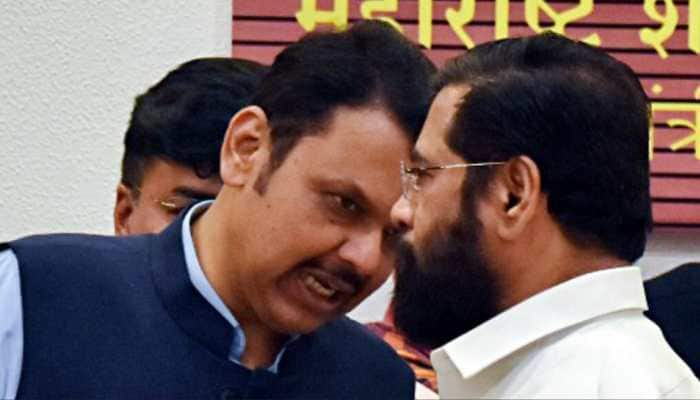Manage your anger or else fuse will blow
India is witness to more and more of its citizens seething in anger.
Trending Photos
)
 Rashi Aditi Ghosh/Zee Research Group
In the early seventies, the angry young man played by Amitabh Bachhan reflected the angst of a nation seeking freedom from various ills facing the country giving the actor an unrivalled popularity. Four decades later it is the ugly face of anger that stares us all in our faces as failure to manage it continues to take a heavy toll on the society.
India is witness to more and more of its citizens seething in anger. While psychologists reason it out attributing its rise to growing stress in day-to-day life, a predominant view suggests channelizing anger into positive energy yielding purposeful action.
It can be provided if anger is dealt in a positive way. On the contrary, uncontrolled anger can negatively impact one’s health and relationships. Is managing the anger the way out, especially in view of its rather cancerous growth in day-to-day life?
Take for instance, violent crimes affecting property, life, public safety and women have recorded a phenomenal growth from 19 per cent in 2007 to 21.2 per cent in 2011, according to the National Crime Records Bureau (NCRB) data. Among states, Kerala tops the charts followed by Delhi, Assam and Manipur in recording highest percentage of violent crimes. Kerala also shares the dubious distinction of recording highest crimes against women.
Perhaps, the state is bearing the brunt of its highly polarised polity. Assam and Manipur too have a history of ethnic violence and tribal clashes. Assam is still in the news for sectarian-ethnic violence which has been further fomented by inflammatory contents posted online by angry netizens, majority and minority community alike.
To contain the growing violent streak and outrage among Indians, the government is taking measures to popularise yoga and its therapies through its 132 centres. The ancient Indian therapy is world-famous for anger management. Yoga is treated as an integral component of the Health and Physical Education Curriculum from classes VI to X under the National Curriculum Framework, 2005 for inculcating a positive approach towards anger in young minds. But do such episodic efforts reach out to one and all, especially when anger gets potentially perpetuated by advent of technology?
With increasing penetration of computers, Xbox games and other media, a violent virtual world of games is sneaking into Indian homes, especially among children. Games like Angry Birds, Crime City and Army Attack are not only popular among kids but even the grown-ups are glued to these games. Likewise, the mega-success of action movies like “Ek tha Tiger”, “Agneepath” and “Rowdy Rathore” in 2012 marks, if anything, the return of anger movies, alas with a difference. Anger is the raison d’être of these movies rather than being the means to achieve the rightful end.
Explaining the scientific quotient behind the growing anger, Dr Sameer Malhotra from Mental Health and Behavioural Sciences at Max Hospital, Delhi says, “Watching a lot of aggression can stimulate Dopamine (neurochemical) flow in our brain. Children are particularly vulnerable to this situation. Playing violent computer games and scoring points over the opponent by hitting him/her badly can desensitise them from the agony and pain of others.”
Reasoning the addiction to violent games prevailing in Indians cyber expert Pawan Duggal at Delhi says, “Indians have inherent anger within themselves, so they look out for ways to outlet this anger. Games like angry birds are very popular amongst Indians as we find it as the best way to channelize our outburst. Taking an advantage out of the anger and anxiety companies are investing in these violent virtual games and earning profit out of it.”
He believes India is not at all ready for these virtual attacks. Authorities in India need to put a tab on these mischievous activities by filtering the usage. As a remedy to calm down the ill effects Dr Malhotra from Max adds, “There is a need for moral education, effective parenting, and opportunities for youth, fear of law, role models, early psychiatric diagnosis and treatment. We should inculcate healthy lifestyle, sleep in time, eat healthy and avoid drugs of abuse.”
Quoting the belief of Indians on spiritual healing as a form of stress management, Dr Ramesh Kaushal, a spiritual healer at California Healthcare Institute, California says, “30-40 per cent cases that come to me complain about growing anger and look for spiritual ways to deal with it.” Due to lack of leisure Indians are developing issues with their family, friends and colleagues, he adds.
Rashi Aditi Ghosh/Zee Research Group
In the early seventies, the angry young man played by Amitabh Bachhan reflected the angst of a nation seeking freedom from various ills facing the country giving the actor an unrivalled popularity. Four decades later it is the ugly face of anger that stares us all in our faces as failure to manage it continues to take a heavy toll on the society.
India is witness to more and more of its citizens seething in anger. While psychologists reason it out attributing its rise to growing stress in day-to-day life, a predominant view suggests channelizing anger into positive energy yielding purposeful action.
It can be provided if anger is dealt in a positive way. On the contrary, uncontrolled anger can negatively impact one’s health and relationships. Is managing the anger the way out, especially in view of its rather cancerous growth in day-to-day life?
Take for instance, violent crimes affecting property, life, public safety and women have recorded a phenomenal growth from 19 per cent in 2007 to 21.2 per cent in 2011, according to the National Crime Records Bureau (NCRB) data. Among states, Kerala tops the charts followed by Delhi, Assam and Manipur in recording highest percentage of violent crimes. Kerala also shares the dubious distinction of recording highest crimes against women.
Perhaps, the state is bearing the brunt of its highly polarised polity. Assam and Manipur too have a history of ethnic violence and tribal clashes. Assam is still in the news for sectarian-ethnic violence which has been further fomented by inflammatory contents posted online by angry netizens, majority and minority community alike.
To contain the growing violent streak and outrage among Indians, the government is taking measures to popularise yoga and its therapies through its 132 centres. The ancient Indian therapy is world-famous for anger management. Yoga is treated as an integral component of the Health and Physical Education Curriculum from classes VI to X under the National Curriculum Framework, 2005 for inculcating a positive approach towards anger in young minds. But do such episodic efforts reach out to one and all, especially when anger gets potentially perpetuated by advent of technology?
With increasing penetration of computers, Xbox games and other media, a violent virtual world of games is sneaking into Indian homes, especially among children. Games like Angry Birds, Crime City and Army Attack are not only popular among kids but even the grown-ups are glued to these games. Likewise, the mega-success of action movies like “Ek tha Tiger”, “Agneepath” and “Rowdy Rathore” in 2012 marks, if anything, the return of anger movies, alas with a difference. Anger is the raison d’être of these movies rather than being the means to achieve the rightful end.
Explaining the scientific quotient behind the growing anger, Dr Sameer Malhotra from Mental Health and Behavioural Sciences at Max Hospital, Delhi says, “Watching a lot of aggression can stimulate Dopamine (neurochemical) flow in our brain. Children are particularly vulnerable to this situation. Playing violent computer games and scoring points over the opponent by hitting him/her badly can desensitise them from the agony and pain of others.”
Reasoning the addiction to violent games prevailing in Indians cyber expert Pawan Duggal at Delhi says, “Indians have inherent anger within themselves, so they look out for ways to outlet this anger. Games like angry birds are very popular amongst Indians as we find it as the best way to channelize our outburst. Taking an advantage out of the anger and anxiety companies are investing in these violent virtual games and earning profit out of it.”
He believes India is not at all ready for these virtual attacks. Authorities in India need to put a tab on these mischievous activities by filtering the usage. As a remedy to calm down the ill effects Dr Malhotra from Max adds, “There is a need for moral education, effective parenting, and opportunities for youth, fear of law, role models, early psychiatric diagnosis and treatment. We should inculcate healthy lifestyle, sleep in time, eat healthy and avoid drugs of abuse.”
Quoting the belief of Indians on spiritual healing as a form of stress management, Dr Ramesh Kaushal, a spiritual healer at California Healthcare Institute, California says, “30-40 per cent cases that come to me complain about growing anger and look for spiritual ways to deal with it.” Due to lack of leisure Indians are developing issues with their family, friends and colleagues, he adds. Stay informed on all the latest news, real-time breaking news updates, and follow all the important headlines in india news and world News on Zee News.
Advertisement
Live Tv
Advertisement







)
)
)
)
)
)
)
)
)
)
